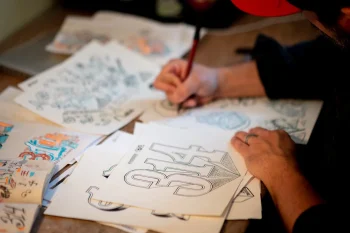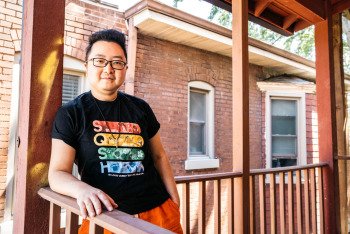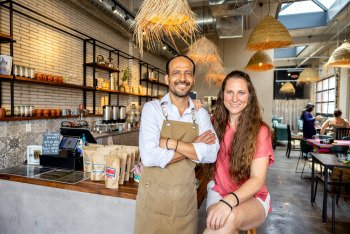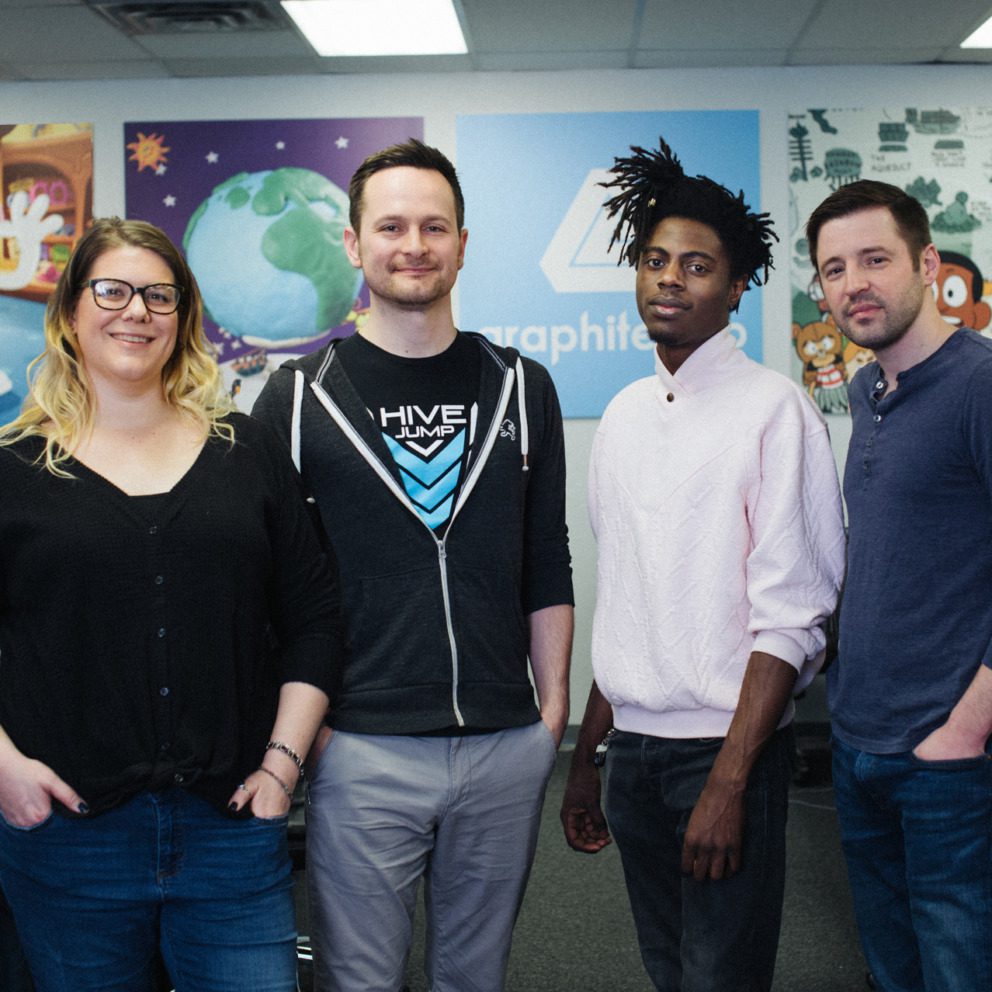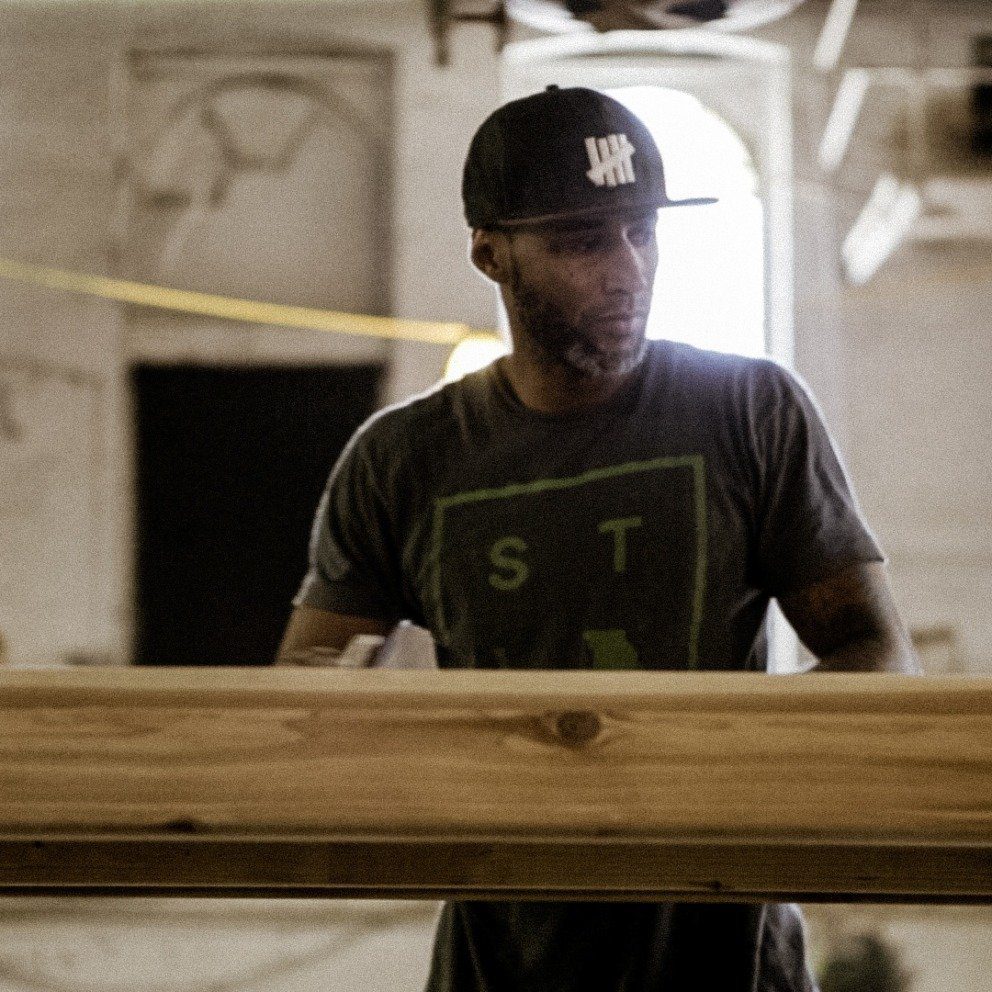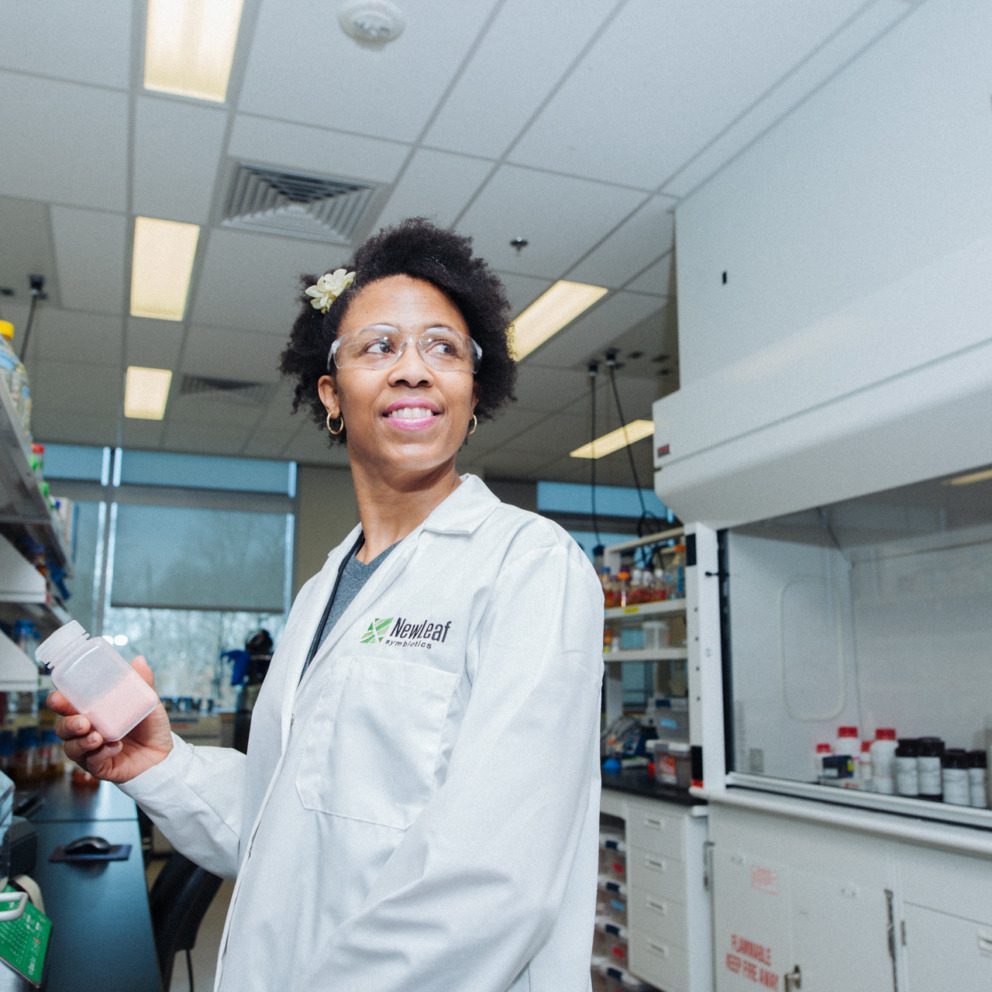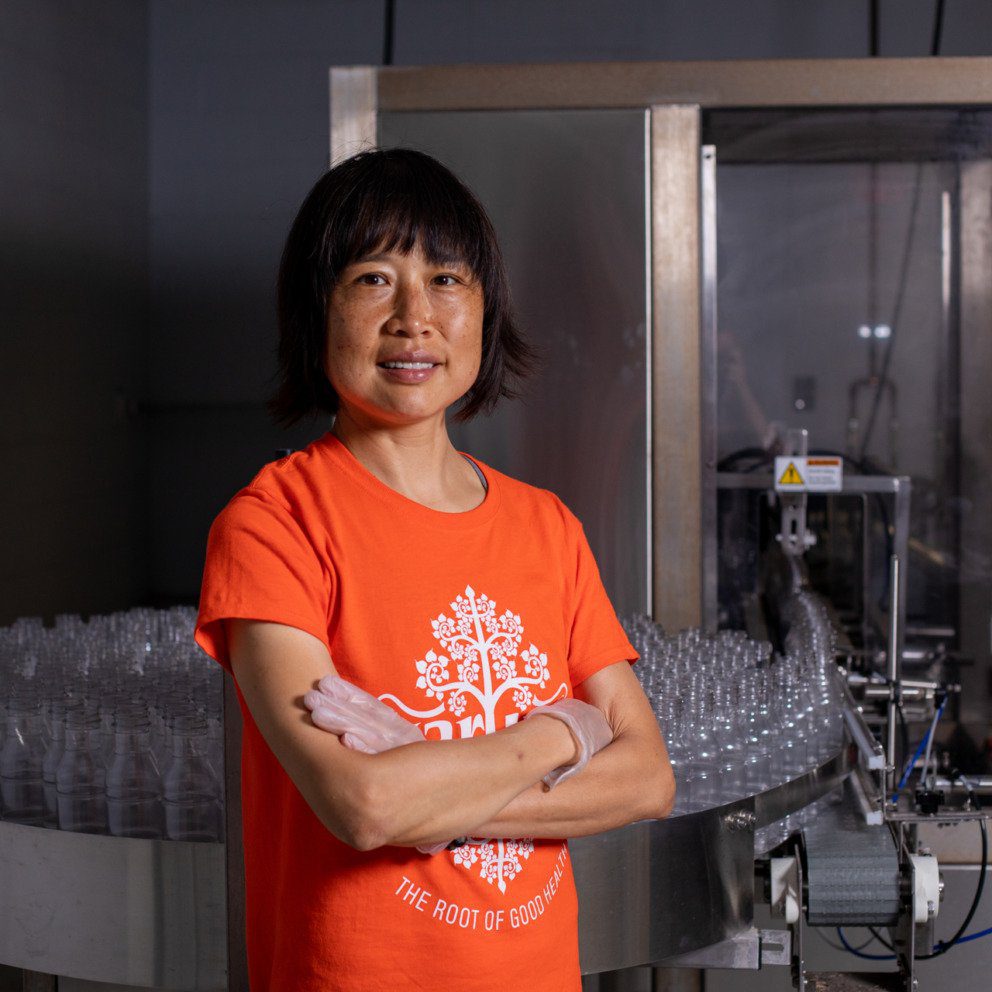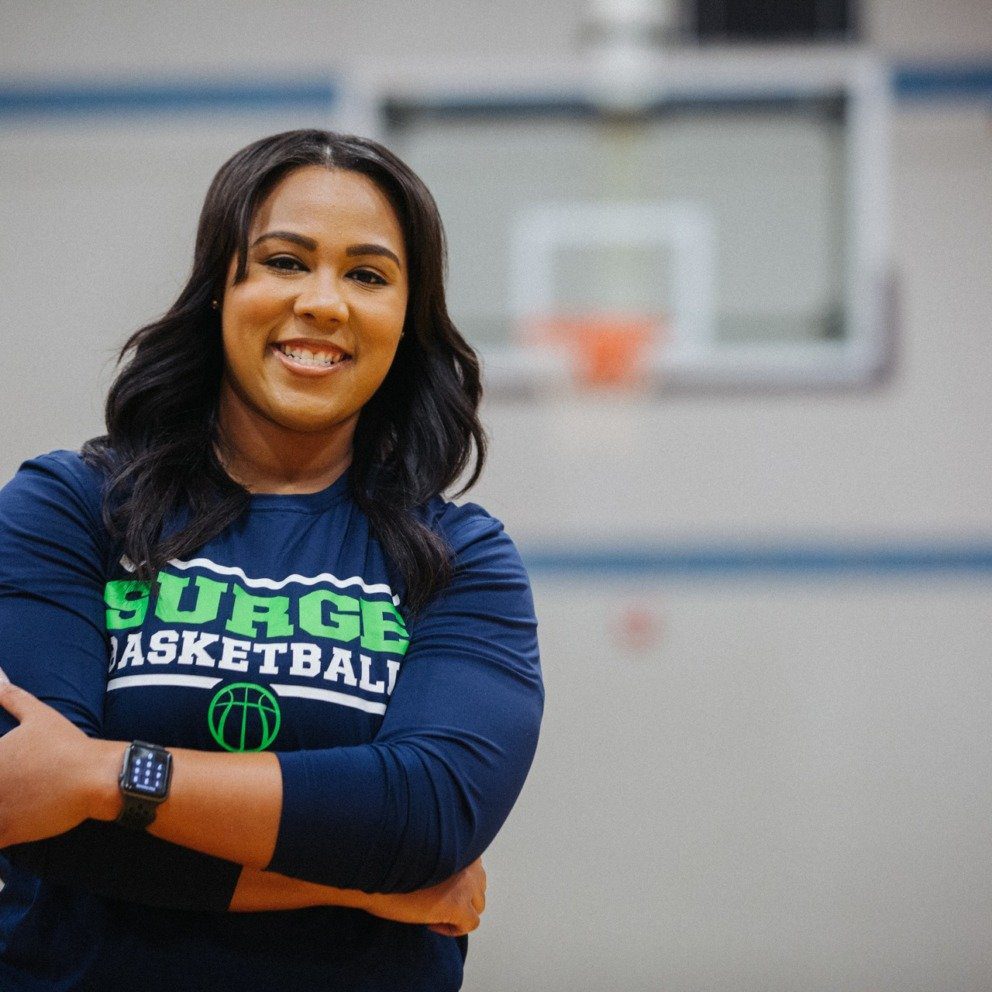Community Game Changer
Entrepreneur Julian Keaton aims to foster community engagement and move St. Louis forward through “Dimensions,” a new interactive geolocation mobile game.
Video games can transport you to other worlds and galaxies—but what if they could also transform communities close to home? That’s exactly what serial entrepreneur Julian Keaton is hoping to achieve with his new interactive geolocation mobile game, “Dimensions.” The game is designed to introduce college students and transplants to new cities and foster community engagement with longer-term residents as well.
The flagship mobile game is set for an official launch in 2021. In the meantime, throughout September, private beta testing is happening, followed by a public beta launch as a progressive web app next month. Interested players can currently sign up to learn more about the public beta launch on the “Dimensions” website.
Keaton was first inspired to develop “Dimensions” in 2016 after a tough year spent living in Los Angeles. He moved to the city without an established network or knowledge of the area, and with just a cell phone, laptop and $50 in his pockets. Walking the streets of L.A. alone, Keaton wished for an accessible and affordable way to immediately connect with his new community.
He ended up moving back to St. Louis in 2016, the same year that “Pokémon Go,” an augmented reality mobile game, launched. The game encourages players to explore neighborhoods, parks and other outdoor areas in pursuit of virtual pocket monsters. Keaton saw the potential of the gaming model to be adapted and evolved to address the challenges he faced while living in Los Angeles.
“Around the time ‘Pokémon Go’ started taking off, I started to see what ‘Dimensions’ would look like: instead of the focus being on catching Pokémon, the experience would be about getting adjusted and acclimated to your community,” Keaton says.
At that point “Dimensions” was only an idea—one Keaton would need investment and support to see through to fruition. But this wasn’t his first foray into entrepreneurship; Keaton has run Stereo Assault, an entertainment and music management company, for the past 10 years, and he also operates Julian’s Jewels, which provides music industry education to musicians and other creative professionals. Launching a mobile video game was a different endeavor, though, and would have to take shape alongside Keaton’s other companies.
“‘Dimensions’ started off as an initiative or side project under Stereo Assault, and so once we started to see that there was traction and that more and more people wanted it, it was like, ‘Alright, we need to go ahead and create a business of its own,’” Keaton says.
To begin fleshing out the concept, Keaton met with community leaders in St. Louis to learn more about the challenges facing underserved and under-supported neighborhoods. Out of those conversations, Keaton identified two community improvement goals for the game: to retain the talented people driving economic development in St. Louis, and to reconnect people with brick-and-mortar businesses in a digital era. (That second goal has become even more critical this year, as the pandemic has depleted on-site business for many mom-and-pop shops.)
“Dimensions” achieves its goals with custom and pre-packaged geolocation experiences that showcase the locally owned businesses, culture and history of neighborhoods. Keaton has broader plans to grow the scope of “Dimensions,” but the game will initially be targeted toward college students and transplants. With this in mind, he and his team have interviewed more than 100 college students since 2017 in an effort to learn more about what would inspire them to explore St. Louis and build a life here after graduation.
In 2019, “Dimensions” had its minimum viable product launch, which means an early version of the game was developed to test the concept and generate feedback. There are three paths players can take in the game: scavenger hunts, choose-your-own adventure games and community gatherings. Some of the game challenges are geocached and allow players to answer questions about what they would like to see developed in the neighborhood. Keaton wants Dimensions to give the community a voice about such growth, which can then be shared with developers and city planners.
This year, Keaton was part of the first Elevate/Elevar cohort, an initiative from St. Louis nonprofit WEPOWER, which seeks to support Black and Latinx communities. (In Spanish, “elevar” translates to “elevate,” “raise” or “lift.”) The six-month program acts as a startup accelerator that provides access to capital, training, business coaching and mentorship, co-working space and more for ready-to-scale companies. By investing in Black and Latinx entrepreneurs, Elevate/Elevar underscores WEPOWER’s mission to support and jumpstart communities that have been hit hard by decades of disinvestment.
“I appreciate the fact that there is an organization that wants to make sure that entrepreneurs like myself—like women of color, like Black women, like Latinx men and women—have the tools that they need to succeed,” Keaton says. “To be able to be rewarded a $7,500 grant is great. A huge part of it for me is just having people to validate ideas, validate concepts, validate the model; that’s also super important for me.”
“I’ve learned a good amount about myself as an entrepreneur,” Keaton says of the program. “I love the fact that they offered us wellness coaches, especially during the pandemic, to be able to just have somebody to talk to, to make sure that mentally and spiritually that we’re OK.”
Looking toward the future, Keaton’s broader plan for “Dimensions”—one that mirrors the long-term goal of Elevate/Elevar—is to support the growth and advancement of St. Louis neighborhoods that have experienced disinvestment over the years.
“That’s a challenge that I can’t solve alone—that takes a number of different decision makers, policymakers, entrepreneurs and community leaders,” Keaton says. “How can we make all communities safe? And then how can we figure out creative ways to get people to want to go to communities like Walnut Park or Jeff-Vander-Lou that have experienced decades of disinvestment? Hopefully as we start to build systems that allow for there to be public safety around these communities, then I can start to have my platform be a means for people to want to go to these communities and learn about them.”
A resident of Walnut Park, Keaton has personally felt the long-term negative impact of economic disinvestment in his community.
“Walnut Park has been disinvested—public money and public resources have been stripped constantly out of Walnut Park for the last 30, 40, 50 years, really since White flight,” Keaton says. “How can we be able to create a system that allows people to give back? One of the ways in which we’re looking to do that with ‘Dimensions’ is to be able to have a game challenge that’ll be like, ‘Hey, what do you want to see at this particular location?’ It could be a vacant lot, a vacant commercial real-estate building that they’re trying to figure out what to do with, and the community can provide ideas on how they want to see this space filled.”
With “Dimensions,” Keaton hopes to help correct the corrosive damage of generational disinvestment by encouraging more small businesses and development. Using Walnut Park as an example, Keaton says that he would use community feedback about neighborhood improvement to then help actualize those ideas and reinvest in the community.
“If you look at communities like Walnut Park that suffer from being a food desert, what would it look like to be able to then go in and prop up a grocery store in the heart of a community and be able to hire people that live in the community?” Keaton says. “That would change the community rather quickly. And so that’s the type of project and initiative that we want to be able to do. We can make this game and generate a bunch of money, but it’s really about how we can give back. Because when people are living healthier, happier lives, it makes the entire region a much more safe and fun place to live, work and play.”
After the beta launch of “Dimensions” next month and the flagship mobile app game’s release in 2021, Keaton has set his sights on expanding into new markets. Over the course of the next four years, he hopes to bring the game to at least four cities annually. In recent months, the ambitious scope of “Dimensions” coupled with his other companies has pushed Keaton to work 20- to 21-hour days. He says the workload and pace motivates him, though, and he’s thankful for the support he receives from his network and team in St. Louis.
Just five years ago, Keaton found himself adrift in a new city, without connections or resources. Today he’s surrounded by a supportive network of family, friends and colleagues and is poised to ensure that future transplants can have equitable and easy access to the same.
“Every day somebody either reaches out via Facebook Messenger or text to say, ‘Hey, we really love the fact that you have not stopped,’” Keaton says of his busy schedule. “And if you are an entrepreneur and somebody says that, take a moment to actually appreciate that compliment. I’m such in the mode of ‘go’ to where sometimes I don’t always appreciate it. For a lot of us who have had to pivot, to make adjustments, when somebody says great job, take a moment to be grateful, be thankful and appreciate it.”

